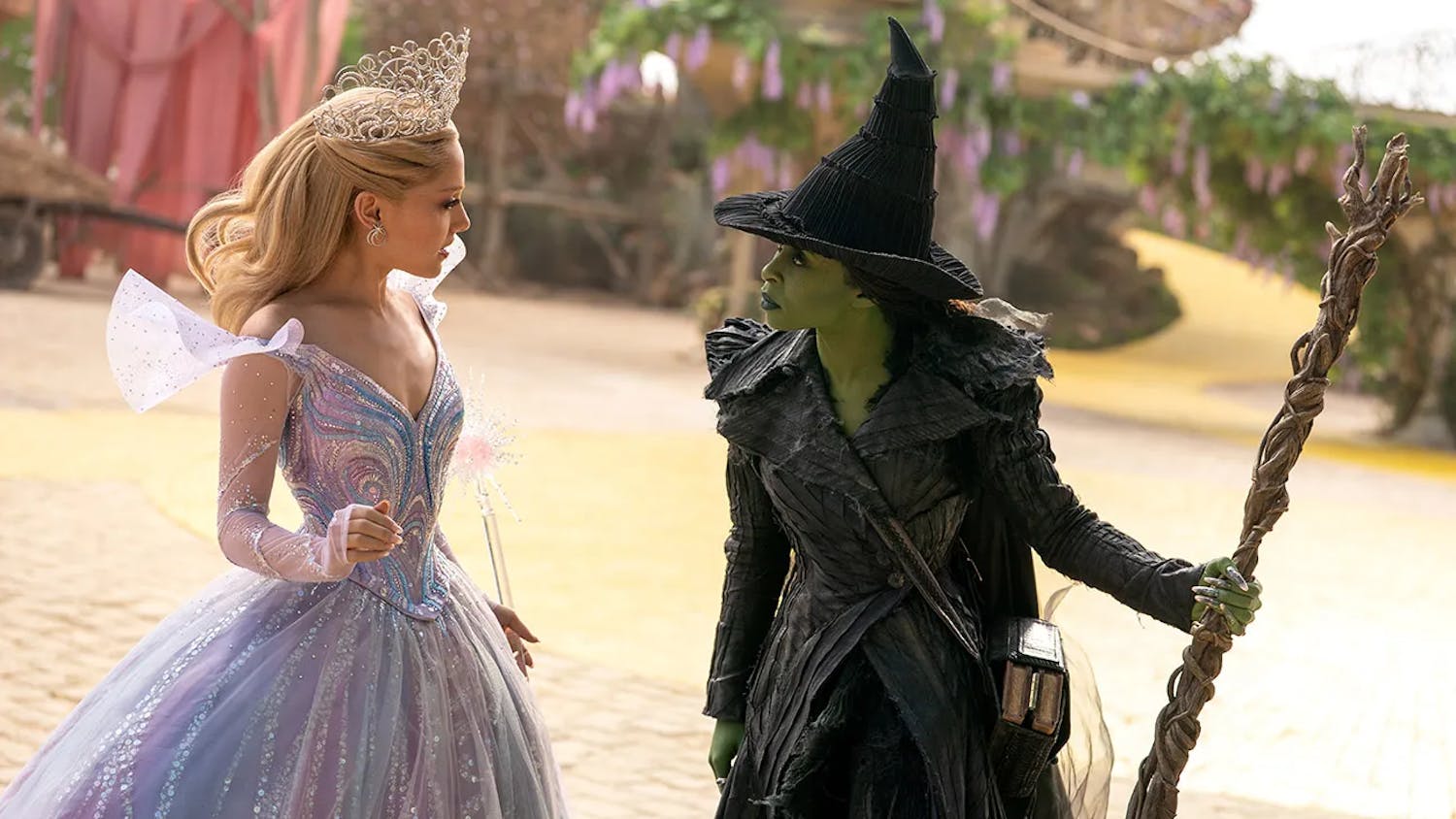A group of adolescent boys in the 1950s running down the street after having hilariously and gloriously stolen a bottle of scotch as well as defeating a corner bully sets the stage for the friendship featured in “Last Vegas.”
After this snapshot of the past we meet the boys, now men, 58 years later, in their sixties. They meet back up after an estrangement to throw a bachelor party in, you guessed it, Las Vegas.
To show that the group of four boys presented in the opening credits “have gone in completely different directions despite their inseparable bond,” a trope that has never before been beaten quite as hard as this dead horse, the men have literally traveled to geographical opposite ends.
The remaining backstory is illustrated through the dialogue, quite inorganically, in order to focus more on elderly jokes and ice sculptures of nipples.
The terrible script, tacky artistry of the cinematography and overall vision of the film were held up with toothpicks, and in some ways was saved by actors previously revered as the greats of our time: Robert De Niro, Kevin Kline, Morgan Freeman and Michael Douglas. The four laugh, cry, fornicate and look confused in what becomes “the first bachelor party that could be covered by Medicare.”
The emotional range of each actor, though uncoordinated, was well thought through, excluding Michael Douglas.
Douglas’s range in this film made no sense as it jumped from intense contemplative gazes portraying his elderly existential crisis to the nonchalant, fake tanned elderly jerk who proposes to a 32 year-old at a funeral with no middle ground to fill in the blanks.
Robert De Niro snags the emotional leading role amongst the four, as the widowed friend gone mad with grief. His scowl and disposition lend themselves to an intensity of characterization that is robbed of its substance by a corny script.
Morgan Freeman’s character ultimately carries the thin plot line of the film in his hand, moving the story along and adding an emotional depth. Freeman truly transcends on the screen – making tragically endearing geriatric jokes while also pulling off expert comic timing.
Of the four however, it is Kevin Kline that portrays his character most ardently. Acknowledging the lost spark in their marriage, his wife gives him a condom and Viagra before he heads to Vegas, essentially giving him permission to cheat.
As he navigates the moral ambiguity of this opportunity, the struggle between carnal and romantic desires is tactfully demonstrated. This is in between blatant product placements for Grey Goose Vodka and Party Rockers.
The current economic climate has been demonstrated at the beginning of this decade as older actors take on less distinguished roles in search of a paycheck.
Luckily, these actors, and inevitably the meager integrity of this film, are saved by the hilarious performances that leave the audience at least entertained.











